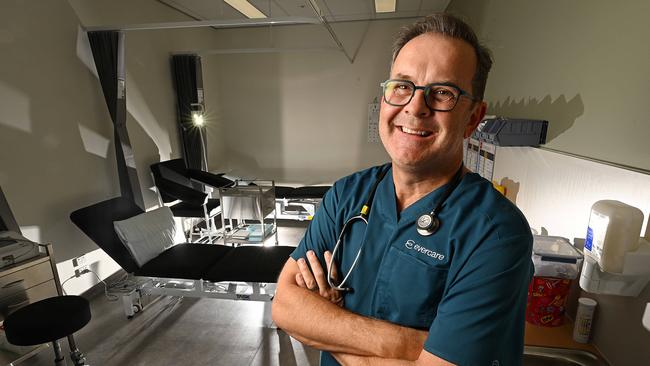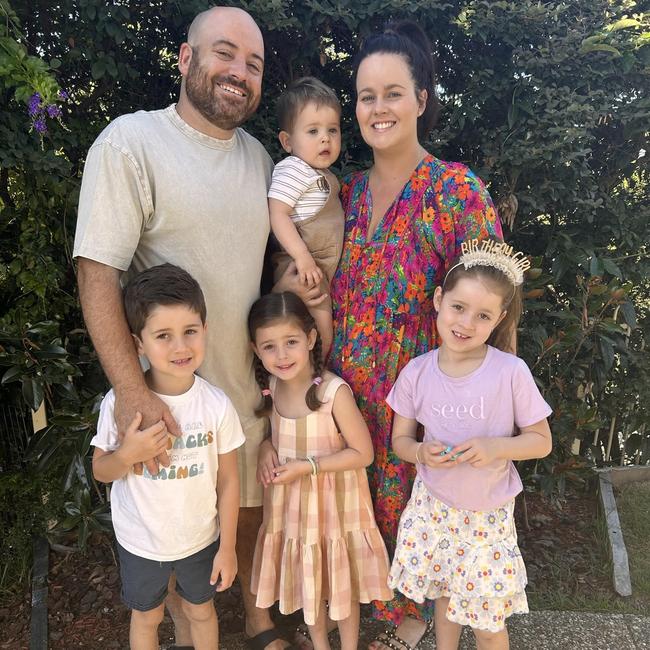New membership-based GP offers modern take on the family doctor
A new Brisbane GP clinic has opened with a membership-style payment model charging patients a minimum of $1.50 a day.
Lifestyle
Don't miss out on the headlines from Lifestyle. Followed categories will be added to My News.
A new Brisbane GP clinic has opened with a subscription-style payment model, charging patients a minimum of $1.50 a day for priority access to doctors, appointments and after-hours care.
The extraordinary move comes as a chronic GP shortage in Queensland had led to families struggling to find a primary-care medic near home, fuelling the collapse of the state’s secondary health system.
But Royal Australian College of General Practitioners president Nicole Higgins warned that while Evercare’s model could prove a cost-effective option for patients seeking frequent GP services, access to consistent care was important.
Since opening last month, Evercare in Clayfield has experienced an influx of interest.
The new clinic has four GPs and 500 members, who have priority access to a regular GP, same or next day appointments, unlimited no out-of-pocket standard consultations for $45 a month (or $1.50 a day).
Patients also get access to an app which has a chat function for quick questions with doctors and requests for repeat prescriptions.
Kate Vanthoff, a mother of four children aged two to seven, is charged a monthly membership fee of $85 – $45 for an adult and $10 per dependent.
The 35-year-old said she had used the app five times since July.
“For our family, knowing that I can get an appointment on the day I need one is a big benefit for me,” she said.
“On average, as a family, I would say we see our GP at least every four to six weeks.
“What we pay a month as members for the five of us is less than what we would be charged for a general appointment at another clinic.

“A lot of GPs don’t bulk-bill … so if I was to go back to our old doctor’s surgery and see another GP, it would be like a $90 out of pocket, upfront fee.”
Another patient, 38-year-old Matthew Balderson, said his new membership would encourage him to take a more proactive, preventive approach to his health.
“The model provides a better patient experience and service,” he said.
“There are multiple options to connect with my regular GP and quickly get the help or prescriptions I need.
“Because it’s a monthly subscription, I feel like I’ll now be more inclined to seek help earlier and take accountability for my health rather than wait until I am really unwell.”
Evercare founder and CEO Steven Dahl said the clinic’s model, known overseas as concierge medicine, provided “on-demand, patient-centric care in an era where typical GP appointments feel rushed and detached”.
“We’re seeking to provide patients with the same level of convenience and access as the digital only players but with the added safety of a regular GP and care team and a clinic to see you in, when you need it,” he said.
“We cap the number of patients our GPs can have at any time, meaning you are always a priority and receive fast service – either in person or in the app – with the same, dedicated GP.”
GP Dr Ian Walsh, who looks after the Vanthoff family, said he was drawn to the clinic’s model because of the flexibility it offers patients, doctors and medical staff.

“As a practitioner, Evercare provides me with the opportunity to continue to deliver optimal health care to my patients, enhanced with the support of the system and app – ensuring excellent quality health care with ease of use for patients and their ongoing health needs,” he said.
“The integration of the app allows me to support and interact with my patients, particularly with the availability of after-hours support directly from the patient’s health team who have access to their health records and history.”
Dr Higgins said: “Any ‘on-demand priority healthcare’ should ideally enable patients to consult with the same GP, because we know that continuity of care is crucial when it comes to long-term health and wellbeing”.
“We are also critical of telehealth models that, while convenient, have the potential to fragment care,” she said.
“This year’s (federal) budget was a huge step forward; however, we must keep investing in general practice care to improve bulk-billing rates and boost GP numbers across Australia so that no patients miss out on the care they need regardless of postcode or income.”
The federal budget in May sought to address the decline in general practitioners’ bulk billing of patients on low incomes and children by tripling bulk billing incentives for consultations – $3.5 billion in funding over five years.




